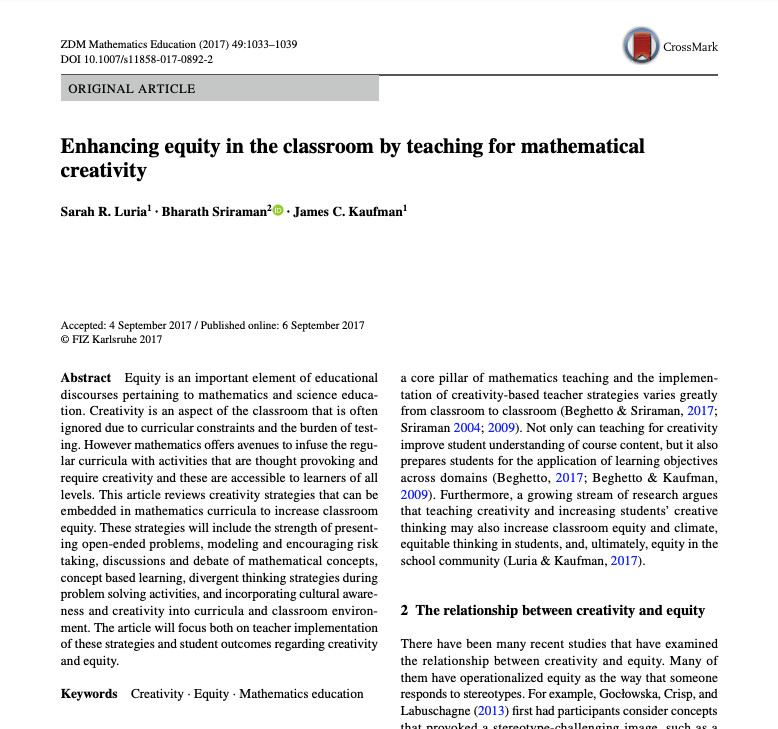My research is grounded in data that demonstrates that schools are not only places where social and educational inequities are found, but they are spaces where race and inequity are taught and learned. Through their educational experiences, students come to understand their position in systems of social domination and hierarchy. Schools are frequently positioned as training grounds for future citizenship wherein students are understood as beings-to-be. Social hierarchy and racial stratification require conformity and deference to dominant norms, which are highlighted by the ways identity and relational politics are performed. Creativity, however, is defined by its breaking from those boundaries—its pursuit of the new. Such novelty has the capacity to free creators from the confines of conformity, confines that are manifested bias, allowing for reimagining of sociocultural structure. Situated in schools, my overarching framework for understanding educational inequities positions creativity as the breaker of boundaries and as an avenue to combat hierarchical socialization. I contend that this serves as a call for and a way to foster creativity in school curricula for equitable transformation of social norms.


